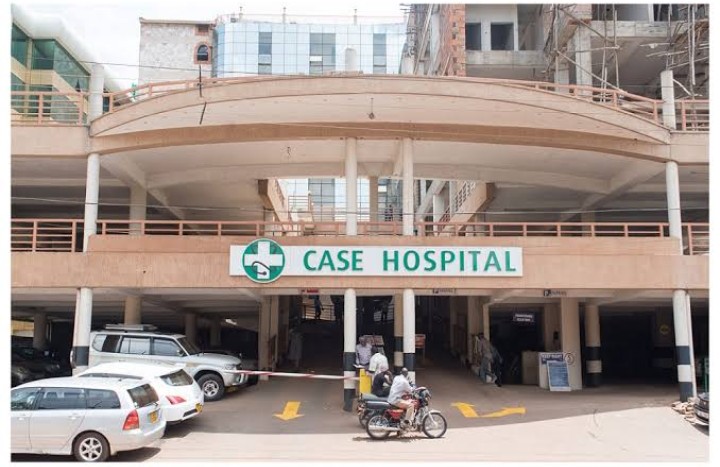Did you know that over 80% of Africa’s modern borders were drawn in Europe—often without a single African present in the room? These colonial borders have evolved from being just lines on a colonial map to living scars across the continent, fueling persistent conflict, and shaping the identity of millions. Understanding how colonial borders shaped Africa’s modern conflicts is not just about revisiting history—it’s about recognising its direct impact on life and politics across the continent today.A Line Drawn in Sand: The Unsettling Truth Behind How Colonial Borders Shaped Africa’s Modern ConflictsThe story of how colonial borders shaped Africa’s modern conflicts begins not with African voices but with European colonial ambitions. In the late nineteenth century, international boundaries were imposed arbitrarily, ignoring the patchwork of ethnic groups and existing territories that had defined the African continent for centuries. These lines drawn became the blueprint for the borders of today’s African states, leading to fractured local communities , divided ethnic groups, and ongoing political disputes.From South Sudan to Nigeria, the consequences of these colonial boundaries remain painfully relevant. Modern African nations still grapple with the legacy of colonial rule , as artificially constructed national boundaries force distinct ethnic groups into unified states, often creating tension, distrust, and rivalry. The scramble for African territory—a process known as the Scramble for Africa —set the stage for a new era of resource competition, identity crisis, and enduring conflict, making it critical for us to explore the ongoing repercussions of these colonial decisions.Startling Facts: The Ongoing Impact of Colonial BordersMore than 200 million Africans today live directly along colonially-imposed borders, with many ethnic groups still split between multiple sovereign nations. Despite over 50 years of independence for many African countries, less than 20% have altered their colonial boundaries. The result? Chronic border disputes, outbreaks of violence, and cycles of mistrust between local communities who once shared languages, trade, and kinship, but now find themselves separated by political lines they did not draw.In regions such as the Horn of Africa or West Africa, these divisions undermine social cohesion, compromise economic development, and complicate national boundaries. Even as African states seek to build stronger economies and democracies, the legacy of colonialism continues to loom large, driving both policy and personal relationships along lines Europeans etched over a century ago.Why Millions Still Live With Colonial-Era BordersThe reason so many Africans still contend with these borders is twofold: fear of greater instability if borders are redrawn, and the institutional inertia of aligning statehood with colonial boundaries. The 1964 Cairo Declaration by the Organisation of African Unity (now African Union) cemented colonial borders as the continent’s default, hoping to avoid border wars. Yet, it also trapped African states within frameworks unsuited to their social realities. The persistence of colonial-era national boundaries fundamentally shapes the political landscape—affecting elections, resource allocation, and inter-community relations.The lived experience of these borders is more than geopolitical—it is personal. Many African families stretch across two or more independent states due to lines drawn by colonial powers. With african states like Nigeria and Cameroon or Sudan and South Sudan , borderlines slice through ethnic territories, complicating citizenship, language rights, and even family reunification—proof that colonial history is very much alive today.Unpacking How Colonial Borders Shaped Africa’s Modern Conflicts—Core InsightsThe Berlin Conference and its impact on African bordersRole of colonial power in creating artificial divisionsHow colonial borders led to modern-day disputesAt the core of the modern African dilemma is the interplay between colonial power and the mosaic of cultures, languages, and ethnicities that existed long before colonial rule. The Berlin Conference of 1884–85 is infamous for allowing European nations to carve up Africa with little regard for its peoples or geographies. This division has shaped everything from civil war dynamics to state-building efforts, making it clear that the wounds inflicted by colonial borders remain unhealed.Colonial powers relied on artificial lines and geopolitical convenience, rather than social or historical realities, fostering a legacy of unresolved disputes and adapting governance structures. For many African nations, negotiating internal and regional peace continues to come second to overcoming the costs of enforced cohabitation within unyielding borders set by foreign rulers more than a century ago.From the Berlin Conference to Today: The Origins of Colonial BordersThe Berlin Conference: A Watershed for African BoundariesThe notorious Berlin Conference of 1884-85 was less negotiation and more of a deliberate act of partition by European powers seeking to expand their spheres of influence. European diplomats, indifferent to indigenous realities, drew straight lines and created new states, lumping together or splitting apart long-established ethnic groups for the sake of administrative convenience. Across the continent, the shockwaves of these decisions are still felt: states such as South Sudan only recently acquired independence as a direct result of colonial-era divisions.By the time the conference ended, over 90 percent of the African continent had been allocated to European colonial powers with only fleeting or no involvement of African leaders. The artificial national boundaries that resulted ignored local geographies and ethnic group distributions, laying the groundwork for clashes over territory, identity, and resources that have persisted for generations. The colonial map drawn then became a blueprint for modern disputes.How Colonial Powers Redrew Africa: Artificial Lines and Forgotten RealitiesColonial powers often prioritized their economic interests and rivalry over accuracy or justice. By ignoring natural markers like rivers, mountains, or traditional tribal territories, colonial officials created arbitrary frontiers—sometimes splitting ethnic groups between multiple colonies or forcing enemies into one administrative unit. The result was a checkerboard of african nations where identity and unity were secondary to resource extraction and imperial expansion.This direct disregard for the realities of African societies led to two persistent problems. First, it rendered traditional systems of governance and social order impotent in the face of external rule. Second, it ignited cycles of resistance and resentment that have defined the post-colonial era, as generations of Africans have struggled to reconcile their pre-existing communities within the straight lines of the colonial legacy.The Immediate Impact of Colonial Rule: Shaping African Nations’ FuturesColonial Powers’ Manipulation: Groups, Languages, and GeographyColonial administrators often exploited linguistic and religious differences to divide, rule, and more easily govern expansive territories. In places like Nigeria, colonial powers institutionalised new administrative regions based less on common heritage and more on ease of control—cementing intergroup suspicions that linger today. Similarly, in Cameroon and Togo, colonial borders divided local communities between French and British zones, entrenching foreign languages as tools of administration and reinforcing divisions around identity and opportunity.The legacy of colonial management continues to affect the way african states organise government, manage land, and interpret legal systems. Even today, some national constitutions bear features inherited directly from colonial arrangements, resulting in persistent challenges related to governance, representation, and civic participation. These imposed boundaries remain a source of strife, as modern states work to integrate diverse ethnic groups , overcome distrust, and establish unified national identities.Emerging African Nations: Identity Crisis in the Wake of Colonial BordersAs independent states emerged in the aftermath of colonial withdrawal, many newly-minted african nations faced a dilemma: how to build a sense of shared purpose among citizens divided by language, culture, or historical grievances? With colonial boundaries maintained for the sake of stability, some countries—like South Sudan —ultimately resorted to prolonged conflict or separation to resolve the contradictory nature of their statehood. The tension between inherited borders and indigenous identities is still keenly felt in countries like Ethiopia, DR Congo, and Nigeria.This struggle for national cohesion comes with high social and political costs. Language policy, education, and even sports teams are battlegrounds for identity, as post-colonial governments attempt to synthesise often incompatible cultural elements within the artificial containers created by colonial powers. Overcoming the fractures from this era is one of the central challenges facing african countries striving for stability and development in the 21st century.The Legacy of Colonial Borders in Africa’s Modern ConflictsCase Studies: Where Colonial Borders Sparked or Prolonged ConflictThe true impact of how colonial borders shaped Africa’s modern conflicts is best revealed through real-world case studies. For example, Sudan’s civil wars and the secession of South Sudan directly trace their roots to ethnic and religious lines ignored—or exploited—by colonial rule. In Rwanda, Belgian colonial policy privileged certain ethnicities, sowing distrust that contributed to the 1994 genocide. Nigeria’s Biafra War and the ongoing crises in eastern Congo are further evidence that inherited colonial boundaries have been catalysts for modern violence, displacement, and humanitarian crises.Reviewing these conflicts exposes a common thread: when colonial boundaries grouped rival ethnic groups or split coherent communities, violence, and instability often followed. The legacy of colonial power still dictates political and social dynamics, and understanding these histories is vital for crafting sustainable, peaceful futures—an essential perspective in both policy and academia today.Examples of Modern Conflicts Directly Linked to Colonial BordersCountryConflictColonial PowerLasting ImpactSudan/South SudanCivil War, SecessionBritain & EgyptMillions displaced, unresolved border disputesNigeriaBiafra War, Ongoing Ethnic TensionBritainContinued ethnic and resource conflictRwandaGenocide, Political CrisisGermany & BelgiumDeep social divisions, post-genocide traumaDR CongoRebel Insurgency, Regional WarsBelgiumInstability in Great Lakes regionWhy Colonial Borders Still Matter in Modern African StatesThe lingering relevance of colonial borders in contemporary African politics is reflected not only in armed conflict but also in economic policy, migration, and even international relations. Nearly all border disputes between african states —from Kenya and Somalia to Ghana and Côte d’Ivoire—stem from flaws in the old colonial map. The artificially constructed national boundaries are still used by governments and courts alike, indicating how these lines continue to dictate land ownership, citizenship rights, and political legitimacy."African nations are still haunted by colonial lines they didn’t draw."These lines also create a direct link between local grievances and international politics, forcing modern African leaders to grapple with both the domestic and cross-border consequences of decisions made far from the continent itself. Reconciliation, development, and regional cooperation now require a nuanced understanding of history, geography, and the enduring power of colonial rule in shaping modern African states.Colonial Borders, Identity, and Statehood—The Human CostHow Colonial Rule Disrupted Communities and Ethnic GroupsThe imposition of colonial borders did more than just reconfigure territories— it fractured communities on a deeply personal level. Local polities, clans, and families whose kinship and trade networks transcended borders suddenly found themselves living in different african states , with new allegiances forced upon them by colonial administrators. The resultant loss of shared identity creates tensions that stretch from the village to the national level.History is filled with stories of ethnic groups such as the Maasai, whose ancestral lands were divided by the Kenya-Tanzania border, or the Ewe people, split between Ghana and Togo. The pain of these schisms still affects language use, marital ties, and even personal names. Across the African continent, the simple act of crossing a border can mean switching official languages, facing discrimination, or being separated from extended family—demonstrating the lasting human impact of boundaries drawn by colonial powers.Societal Friction: Modern Challenges Rooted in Past Colonial PowerThe legacy of colonial rule is most visible in the ongoing friction between ethnic groups , the frequent recurrence of border disputes, and the deep-seated divides in national politics. For many african states , the colonial legacy manifests in contested elections, separatist movements, and ongoing negotiations over resources and identity. The imposition of boundaries by colonial power has made it harder for post-colonial governments to foster effective, inclusive national governance.The cost of this legacy can be measured in more than conflict; it is felt in the erosion of traditional governance , the rise of exclusionary policies, and the sense of uncertainty among citizens about their role within the state. The challenge of turning artificial boundaries into cohesive polities remains one of the greatest hurdles for delivering development and democracy across the continent.Loss of traditional governanceEthnic divisions and border disputesLingering colonial legacy in national politicsReimagining African Borders: Lessons from the Legacy of Colonial PastModern Initiatives to Address the Colonial Borders ProblemRecognising the persistent challenges posed by colonial borders , African leaders and organisations have sought to find new solutions. Efforts such as the African Union Border Programme promote peaceful resolution of disputes and encourage pragmatic border management tailored to modern needs. Bilateral initiatives, such as the peaceful demarcation of boundaries between Ghana and Togo, offer hope for reducing tensions and safeguarding the rights of border communities.Some regional blocs—like the East African Community—are experimenting with looser border protocols, aiming to restore old trade ties and social links once disrupted by colonial lines. These efforts stress that while the past cannot be changed, cooperation can help adapt current realities, reduce conflict, and promote interdependence among african nations for shared prosperity.Alternative Pathways: Unity, Cooperation, and Regional ProjectsThe African Continental Free Trade Area (AfCFTA) exemplifies how continental cooperation might transcend inherited divides. Projects encouraging regional economic integration, such as highways that cut across borders or joint efforts to manage shared rivers, demonstrate a growing recognition that colonial lines should not dictate African futures. In countries like Rwanda and Uganda, the reopening of old railway and road networks rebuilds ties that predate the colonial map, offering a chance for healing and mutual progress.Ultimately, while some advocate redrawing borders, others stress the need to foster unity and dialogue—helping communities carve out a sense of belonging that rises above colonial divisions. The challenge is immense, but the resilience of African societies in finding new forms of cooperation stands as a testament to their determination to overcome the past.How Colonialism Affected Africa’s BordersArtificial Boundaries and Their Enduring ImpactThe imposition of artificial boundaries during colonial rule continues to have a profound effect on the African continent. Unlike borders shaped organically through diplomacy, migration, or war, colonial borders were often straight lines hastily drawn on a map. Their arbitrary nature has left a legacy of unresolved grievances and disrupted traditional ways of life for many african states , as old migration paths and trade routes were unexpectedly blocked or rerouted by colonial directives.In places like Mali-Niger or Chad-Libya, the straight-line borders remain a source of dispute, with nomadic peoples and ethnic groups continuing to challenge their legitimacy. The legacy of colonialism in African geopolitics is thus complicated: efforts to modernize and industrialize are often slowed by the reality that the fabric of the continent’s societies was fundamentally altered by colonial power.Unresolved Tensions and Ongoing DisputesBorder disputes are common across Africa and often rooted in colonial rule. Whether it’s the Bakassi Peninsula between Nigeria and Cameroon or Ethiopia’s tense relations with Eritrea, colonial-era boundaries are frequently at the heart of ongoing conflict. These disputes impact more than just national leaders—they affect trade, local security, and even access to basic services for ordinary people.The persistent uncertainty surrounding territorial claims hinders development, investment, and peace-building, perpetuating poverty and instability in border regions. Until African states find ways to renegotiate or reinterpret these inherited lines, the spectre of colonial borders will continue to loom over the continent’s future.The Role of Colonialism in Shaping Modern African StatesColonial Foundations of Modern Political StructuresMany of Africa’s current political systems can be traced back to colonial administrative frameworks. Centralized bureaucracies, judicial systems, and even military hierarchies were imported wholesale from European models, with little adaptation for local complexities. As a result, many african states still struggle with governance structures compromised by competing legacies: the demands of modernity on one hand, and the enduring pull of older, indigenous traditions on the other.This tension has made political reform difficult in several countries. In rapidly urbanising states such as Kenya, Ghana, or South Africa, the challenge of adapting colonial governance paradigms to contemporary realities is ongoing. The effect is a patchwork of legal traditions, contested power-sharing arrangements, and what many call a ‘colonial hangover’ in government.Building National Identity in the Shadow of Colonial BordersNational identity remains a fragile construct for many African countries, weighed down by the contradictions of colonial inheritance. With unity often at odds with the diversity inherent in colonial-boundary states, leaders have experimented with various nation-building strategies: emphasizing shared history, adopting neutral official languages, or rebranding national symbols. The results have been mixed, with some countries finding strength in pluralism, and others falling prey to cycles of ethnic division or “winner-takes-all” politics.The challenge is persistent but not insurmountable. Where old divisions remain most pronounced, it is crucial for both citizens and governments to consciously work toward inclusive narratives that bridge differences rather than reinforce them.In What Ways Have Borders Established During Colonization Led to Modern Conflicts in Africa?Examining Country-Specific Examples: Nigeria, Sudan, RwandaNigeria : The colonial unification of the Hausa-Fulani, Yoruba, and Igbo into a single British colony set the stage for repeated political and economic conflicts—culminating most tragically in the Biafra Civil War. Ethnic fault lines drawn by colonial authorities continue to fuel crises today, including the rise of Boko Haram and persistent resource struggles in the Niger Delta.Sudan/South Sudan : Arbitrary boundaries drawn by the British ignored both ethnic and religious realities, fueling decades of civil wars. The eventual secession of South Sudan in 2011 stands as a testament to the unresolved legacies of colonial borders—borders which still plague relations between the two nations.Rwanda : Colonial-era distinctions imposed by Germany and Belgium—where the Tutsi were favoured over the Hutu—directly contributed to ethnic antagonism, culminating in genocide. The labels and structures introduced by colonial powers have endured, affecting not only political and economic relationships but also deeply personal aspects of identity and memory.Why These Conflicts Persist: The Colonial Borders DilemmaDespite decades of independence for most African states, colonial boundaries continue to serve as fault lines for political and social conflict. The sheer complexity of redrawing borders has deterred most efforts—fearing that doing so would open up old wounds or fuel separatism. Instead, leaders have often chosen to operate within inherited lines, investing in systems that aim to manage difference, but these systems have had only partial success. Where resources are scarce and historical grievances run deep, violence often re-emerges as a tool for negotiating power and territory.At its heart, the dilemma is about balancing national integrity with communal autonomy—a process made exponentially more difficult by the rigid boundaries left by colonial rule. The endurance of these issues points to the fundamental need for solutions that go beyond mere administration, demanding new approaches to governance, dialogue, and reconciliation.What is the Main Cause of Conflict in Africa? A Closer Look at Colonial BordersBeyond Borders: Other Catalysts and Colonial LegaciesWhile colonial borders are a major factor in African conflict, they are not the sole cause. Competition over land and resources, leadership struggles, external interference, and legacy of colonial economic systems all compound underlying tensions. The pressures of climate change, rapid population growth, and global market dynamics add additional risks, making conflict management in many african states a complex, multi-layered challenge.Still, the legacy of colonial exploitation—extracting wealth without developing robust institutions—means that many of today’s struggles trace their origins to the period of direct colonial rule. Peacebuilding efforts must therefore address both material needs and the deep wounds inflicted by decades of exclusion and marginalisation under different colonial regimes.Why the Colonial Borders Debate Won’t Go AwayThe persistence of the colonial borders question speaks to its direct impact on identity, politics, and economic opportunity across Africa. As long as people feel divided by arbitrary lines, and as long as resource conflicts overlap with ethnic or regional divides, calls for border reviews or new forms of federation will continue. International law, for now, prioritises stability over revision, but the underlying discontent remains tangible, informing protest, policy, and academic debate alike.They split ethnic groups and communitiesCreate cross-border disputes and warsHamper trade and regional integrationFuel political marginalisation and exclusionComplicate citizenship and identity for millionsFrequently Asked Questions on How Colonial Borders Shaped Africa’s Modern ConflictsWere colonial borders intentionally designed to create division?While not always intentionally malicious, colonial borders were principally drawn for the convenience of colonial powers with little regard for indigenous realities. In some cases, divide-and-rule tactics were deliberately used to weaken resistance and make governance easier—resulting in persistent division and mistrust between different ethnic groups.Can re-drawing borders solve Africa’s conflicts?Re-drawing borders is a complex, risky task that can cause as many problems as it solves. Most African countries support maintaining current borders to prevent new rounds of conflict, emphasising peaceful coexistence, devolved governance, and regional cooperation. Meaningful resolution often depends more on equitable institutions and inclusive policies than on shifting lines.How do African nations manage colonial legacy today?African governments employ a range of strategies: building inclusive identities, investing in local languages, managing border regions through joint commissions, and promoting regional integration. Persistent political, economic, and social reforms are required to fully address the legacy of colonial borders and their ongoing effects on daily life.Key Takeaways: Why Understanding Colonial Borders Is Essential for Africa’s FutureColonial borders remain a powerful force in shaping African politics, society, and identity.Most African conflicts have roots in boundaries imposed without local consultation.Successful nation-building and integration require confronting and adapting this colonial legacy.The future of African unity lies in dialogue, cooperation, and creative border solutions.Awareness of history empowers both leaders and citizens to move towards peace.Take Action: Stay Informed, Initiate Dialogue, Support Solutions on the Impact of Colonial BordersChallenge common narratives, educate yourself on Africa’s history, and support pan-African initiatives that promote peace and understanding across borders. Your informed voice can help reshape perceptions and contribute to positive change.ConclusionTake decisive steps: learn Africa’s colonial history, advocate for equitable solutions, and empower communities to bridge divides created by old lines. The future depends on understanding—and transforming—this legacy.Sourceshttps://www.bbc.com/news/world-africa-20465752https://www.dw.com/en/the-berlin-conference-how-europe-carved-up-africa/a-18278894https://www.economist.com/the-economist-explains/2017/02/20/why-africas-borders-are-so-straighthttps://www.aljazeera.com/features/2020/7/9/how-africas-borders-were-drawn-just-a-century-agohttps://www.oxfordbibliographies.com/display/document/obo-9780199730414/obo-9780199730414-0182.xml







 Add Row
Add Row  Add
Add 


Write A Comment